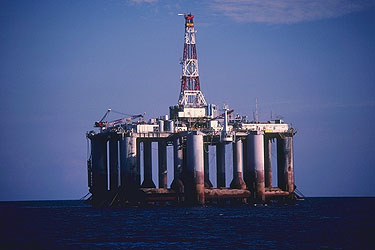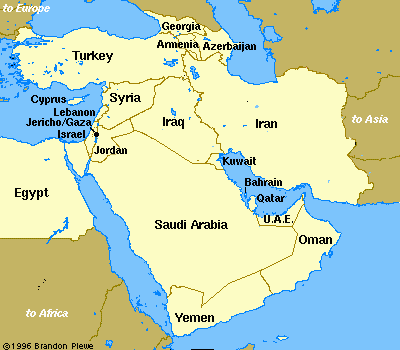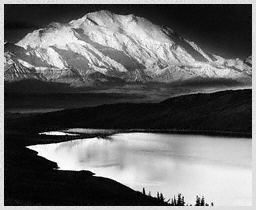 The
1970’s
The
1970’s
Energy Crisis
 The
1970’s
The
1970’s
Energy Crisis
By the start of the 1970’s, the environmental movement had gained significant momentum in the United States. Earth Day grabbed the attention of millions on April 22, 1970. "Environmentalism" emerged as a broad term addressing common concerns over crucial issues that affected all forms of life on earth. The growth of the movement during the 1970's was partially spurred by the radical protests of the 1960’s, an era which questioned many of the trends in American society, from materialism, to imperialism, to violence, to racism. Most appropriate of these ideas, in terms of our project, was the consumption habits of many Americans and the relation of those habits to the natural environment.
 The Energy Crisis of the 1970’s powerfully illustrated this
pairing of environmentalism with concerns over resource scarcity. At
once, quality of life was inseparable from natural resource
degradation, and environmentalism became more of a health-related
term. On top of this, the effects that the crisis embedded into
history elicited serious questioning of our perspectives toward
natural resources in the United States. Furthermore, the
“crisis” triggered great developments in the way of
alternative energy forms. It was during these years that many new
alternative sources we know today were pioneered, and new legislation
supported research and development, as well as installation, of these
systems. For this reason, the crisis was a catalyst for positive
change, both in perceptions and in priorities. Undoubtedly, these new
ideas instigated new debates over the role of government as well as
the order of priorities, and these debates still linger today. For
this reason, understanding the 1970’s oil crisis will allow us
to better understand the debates that we face today over energy
sources worldwide.
The Energy Crisis of the 1970’s powerfully illustrated this
pairing of environmentalism with concerns over resource scarcity. At
once, quality of life was inseparable from natural resource
degradation, and environmentalism became more of a health-related
term. On top of this, the effects that the crisis embedded into
history elicited serious questioning of our perspectives toward
natural resources in the United States. Furthermore, the
“crisis” triggered great developments in the way of
alternative energy forms. It was during these years that many new
alternative sources we know today were pioneered, and new legislation
supported research and development, as well as installation, of these
systems. For this reason, the crisis was a catalyst for positive
change, both in perceptions and in priorities. Undoubtedly, these new
ideas instigated new debates over the role of government as well as
the order of priorities, and these debates still linger today. For
this reason, understanding the 1970’s oil crisis will allow us
to better understand the debates that we face today over energy
sources worldwide.
 Background
Background
As many people will remember, 1973 brought widespread panic to the nation, with the onset of an international oil embargo. Middle Eastern countries, wrought with long standing religious and political conflict, cut off exports of petroleum to many Western Nations, including the United States and the Netherlands, in anger over their involvement in the Arab-Israeli conflicts. The resounding impact in the United States of this embargo was compounded by weak national policies on energy issues, as well as generally high consumption levels and panic-stricken investors. Therefore, oil prices skyrocketed, the term “Mideast Oil Crisis” was born, and the effects gained momentum. Lines at gas stations increased, and people were quick to blame the government, the gas companies, the Arabs, and the embargo in general. Clearly though, many more forces were involved with the resulting “crisis” in the United States.
 Brief
History
Brief
HistoryNegotiations following World War II created a Zionist state, Israel, as a place for Jews after the war. Israel proclaimed independence in 1948, claiming land from the British-controlled territory known as "Palestine". The settlement was controversial and has produced a long-standing conflict that continues today. The controversy resulted from the fact that the Jews agreed to the resolution but the local Arabs refused to acknowledge the Israeli State. The Arabs then initiated numerous attacks on Israel in the year 1949. We now refer to this eruption of violence as the "Suez-Sinai War."
As the conflicts continued and grew charged with opposition on each side, the international interest in the problem inflated and other countries began to actively take sides, creating alliances that still exist today, and these alliances are largely what spurred the onset of the embargo in 1973. For example, the United States allied with Israel, against the Arab forces in Palestine. Arab forces united against Israel, and the Soviet Union backed the Arabs with technology. With Western countries like Britain, France and the Netherlands on Israel’s side as well, the conflict naturally grew to an enormous scale, and the Arabs responded in 1973 with a revolt against Western powers in the oil embargo.
It is important to emphasize that the energy crisis in the United States cannot be explained simply as the result of the political alliances. The 1973 oil crisis did not wholly cause the energy crisis, though it is important to understand its impact and its catalyzing component. Actually, many sources emphasize that the actual “crisis” in the United States stemmed more from our own domestic political and social circumstances than any single event that might have occurred overseas.
 Facts
And Statistics From The Embargo Years
Facts
And Statistics From The Embargo Years
 What
Were The Causes?
What
Were The Causes?
And the Effects...

 New
Policies and Changing Ideas
New
Policies and Changing Ideas

The Move Towards
Alternative Energy Sources
Some Conclusions,
and...
Our Project
As part of everyday life in the 1970’s, most Americans had to face the fact that energy sources like oil were limited and not always readily available. Those who experienced long lines at gas stations and higher prices for oil learned more about the sources of their energy. These experiences often led people to choose more economical solutions and their personal choices often included alternative energy use. Furthermore, the philosophical motivation to use less fossil fuel became much more enticing, with direct experience as proof of the impact of over-consumption. The shortage of oil resources during the 1973 embargo, when placed into the context of a grounded and growing environmental awareness, profoundly changed the way in which people in the United States perceived energy.
Our project has uncovered numerous local stories of alternative energy use, from individual, to residential, to commercial levels. The case studies provided in our resource will illustrate the various motivations for these specific lifestyle changes. Not all of them were “environmentally” motivated. In fact, and much to our surprise, many of these decisions were implemented to save money. That surprising fact alone has proven these case studies extremely valuable to people around Vermont, New England, and other comparable climates, so that they too may incorporate more use of alternative energy sources in their own lives.
